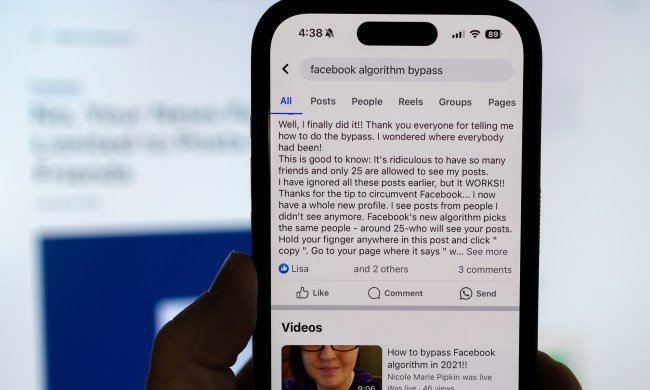Meta has reportedly shelved plans to make a smartwatch, codenamed Milan, that would come equipped with two cameras. As per a Bloomberg report, the company’s first smartwatch was slated to debut next year with a price tag of $349. However, the company has now canceled plans for mass production, apparently as a cost-cutting measure.
As per images of the prototype shared in the report, Meta’s smartwatch had a squircle display with a flat profile and a gold casing. The first 5MP camera sat on the front, positioned in a notch at the bottom of the screen. A more powerful 12MP camera was placed at the back, resting against wearer’s the wrist.
According to the report, this secondary camera would have allowed users to capture pictures when the watch body was detached from the straps. Aside from the usual set of fitness-centric capabilities such as heart rate measurement, breath analysis, and activity monitoring, Meta’s smartwatch also came installed with apps for Spotify, WhatsApp, and Instagram Stories.

Unsurprisingly, the canned smartwatch would also have leveraged some of Facebook’s ecosystem perks. For example, it reportedly would let you post fitness achievements on Facebook or Instagram, straight from the smartwatch. A Facebook account would play the central role in managing all software and app-based activities, but there was no dedicated app store in the picture.
It was previously reported that Facebook was working on a custom fork of Google’s Android-based smartwatch operating system. Notably, Meta’s nixed smartwatch was targeting 18 hours of battery life on a single charge. One of the reasons cited for canceling the project was that the onboard camera interfered with the EMG (or electromyography) capability, which is currently a hot area of research and development at Facebook’s Reality Labs.
In Meta’s own words, the EMG tech relies on “sensors to translate electrical motor nerve signals that travel through the wrist to the hand into digital commands that you can use to control the functions of a device.” Meta claims the EMG tech can detect even a millimeter-level finger movement, allowing users to control and interact with virtual items (most likely, in the metaverse) using wrist-worn devices.

Meta has already given a glimpse of prototype devices that employ the EMG tech to let users control an AR overlay of a desktop, type on a virtual keyboard, and even shoot an arrow from a virtual bow. Even though the smartwatch project has been canceled, learnings from it will be used in other wrist-worn devices that are currently under development. Moreover, Meta has reportedly chalked out plans for multiple smartwatches over the course of the next few years, so this might just be an initial hiccup.
Interestingly, an Apple patent that was unearthed recently also envisioned a smartwatch with multiple ways to equip it with a camera. One of the methods involved fitting a camera sensor on the lower portion, similar to Meta’s own idea, but housed in a detachable module. While the idea of a camera on smartwatches might sound invasive from a privacy perspective, it just might be where the future of wearables is headed.



